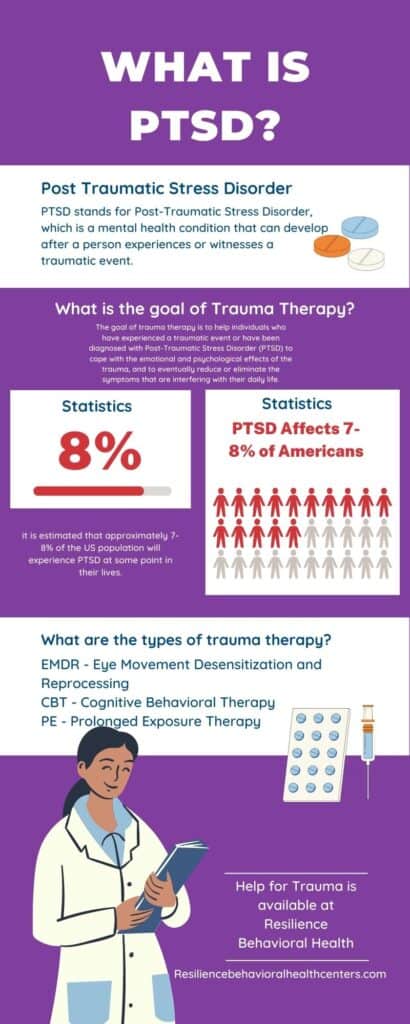How EMDR Therapy is Transforming Mental Health in Massachusetts
You’re finally free from the shackles of a haunting memory. The vivid images, suffocating emotions, and debilitating triggers that once controlled your life have faded, replaced by a newfound sense of peace and empowerment.
This isn’t just a dream; it’s the reality that EMDR therapy can offer countless individuals struggling with trauma in Massachusetts and beyond. Roughly 60% of adults in the United States have experienced at least one traumatic event in their lifetime. In Massachusetts, that translates to millions grappling with the invisible scars of trauma—PTSD, anxiety, depression, and a host of other mental health challenges.
For too long, traditional therapies often felt like a slow, uphill climb against a relentless tidal wave of pain. But with EMDR, a breakthrough approach is emerging, offering a beacon of hope in the storm. In this article, we will discover how EMDR therapy is revolutionizing the lives of people struggling with mental health.
Which Disorders Can EMDR Therapy Treat?
Eye Movement Desensitization and Reprocessing (EMDR) therapy was initially developed to treat post-traumatic stress disorder (PTSD). Over the years, it has become very versatile as well as highly effective in addressing a range of mental health conditions. While the evidence base continues to expand, EMDR is commonly used to treat the following conditions:
1. Post-Traumatic Stress Disorder (PTSD)
EMDR is most well-known for its effectiveness in treating PTSD. It helps individuals process and integrate traumatic memories, reducing the emotional charge associated with the trauma.
A small 2018 study looked at the advantages of EMDR for PTSD in Syrian refugees. After receiving EMDR, 61% of the 18 participants no longer showed the symptoms of PTSD diagnosis. Additionally, EMDR recipients reported fewer depressive symptoms.
2. Anxiety Disorders
EMDR has shown promising results in treating various anxiety disorders, including generalized anxiety disorder (GAD), panic disorder, social anxiety disorder, and specific phobias.
3. Depression
Some individuals with depression, especially those who have experienced trauma, may benefit from EMDR therapy. It can address underlying traumatic experiences that contribute to depressive symptoms.
According to NLM, 32 patients undergoing inpatient treatment for depression discovered that EMDR therapy had potential as a therapeutic intervention: 68% of patients who underwent EMDR experienced complete remission following treatment.
At follow-up more than a year later, they reported fewer relapses and concerns related to depression, along with more general improvements in depression symptoms following EMDR.
4. Panic Attacks
EMDR can be used to target traumatic experiences that may be linked to the onset or exacerbation of panic attacks. By reprocessing these memories, individuals may experience a reduction in the frequency and intensity of panic attacks.
According to a 2017 study with 84 participants who had panic disorder, EMDR and CBT are equally effective at treating the symptoms of panic disorder.
5. Phobias
Specific phobias, such as fear of flying, heights, or animals, can be effectively treated with EMDR. The therapy helps desensitize individuals to the distressing memories associated with the phobia.
6. Performance Anxiety
EMDR is increasingly being applied to address performance anxiety in various domains, including public speaking, sports, and the performing arts. It can help individuals process the underlying causes of performance-related stress.
7. Dissociative Disorders
EMDR is considered a valuable component in the treatment of dissociative disorders, such as dissociative identity disorder (DID) and depersonalization/derealization disorder.
8. Grief and Loss
EMDR may be utilized to help individuals process and cope with grief and loss, facilitating the adaptation to the emotional impact of losing a loved one or experiencing other significant life changes.

9. Childhood Trauma
EMDR is often used to address trauma experienced during childhood, including physical, emotional, or sexual abuse. It can help individuals reprocess memories and develop more adaptive coping mechanisms.
10. Eating Disorders
Some therapists incorporate EMDR into the treatment of eating disorders, especially when trauma is a contributing factor. It can help individuals address underlying issues that may be connected to disordered eating behaviors.
11. Chronic Pain and Illness
EMDR has been explored as a complementary therapy for individuals experiencing chronic pain or coping with chronic illnesses. It can contribute to overall well-being by addressing the emotional aspects associated with physical symptoms.
12. Addictions and Substance Abuse
While not a standalone treatment for addiction, EMDR may be used as part of a comprehensive approach to address trauma-related issues that contribute to addictive behaviors.
Top 6 Ways in Which EMDR Therapy Massachusetts Is Making an Impact
1. Trauma Resolution and Beyond
While initially designed for the treatment of post-traumatic stress disorder (PTSD), EMDR has shown versatility in addressing a broad spectrum of mental health issues. Its success in trauma resolution has paved the way for its application in treating anxiety disorders, depression, phobias, and performance anxiety.
The accelerated information processing characteristic of EMDR sets it apart, offering a more efficient therapeutic option.
2. Bilateral Stimulation and Neurobiological Changes
Central to EMDR is bilateral stimulation, a key component believed to induce neurobiological changes. Research suggests that this therapeutic method can lead to alterations in brain activity, particularly in regions associated with memory and emotion regulation. These changes may underlie the observed therapeutic effects of EMDR.
3. Client-Centered Approach and Active Participation
One of the strengths of EMDR lies in its client-centered approach. While therapists guide the process, individuals actively participate in their healing journey. Clients play an integral role in identifying target memories and working towards adaptive resolutions, fostering a sense of empowerment and engagement in the therapeutic process.
Moreover, therapists are increasingly recognizing the importance of cultural sensitivity in EMDR. Customizing the therapy to align with cultural nuances and beliefs ensures its applicability across diverse populations, fostering a more inclusive and effective mental health approach.
4. Integration with Other Therapies and Techniques
EMDR is often integrated with other therapeutic modalities, further enhancing its effectiveness. The approach complements cognitive-behavioral therapy (CBT), mindfulness techniques, and other evidence-based practices. This integrative approach allows therapists to tailor the treatment to the unique needs of each individual.
Some practitioners are integrating biofeedback devices into EMDR sessions. These devices monitor physiological responses such as heart rate and skin conductivity, providing real-time data to guide therapists in adjusting the intensity and pacing of bilateral stimulation for optimal therapeutic outcomes.
5. International Recognition and Continued Research
The global acceptance of EMDR is evident through its recognition by organizations such as the World Health Organization (WHO) and the American Psychological Association (APA).
Ongoing research continues to explore the mechanisms underlying EMDR, providing a growing body of evidence supporting its efficacy and contributing to its integration into mainstream mental health care.
6. Technological Integration
Virtual Reality (VR) is being explored as a complementary tool in EMDR therapy. Immersive environments can be created to simulate therapeutic scenarios, enhancing the effectiveness of bilateral stimulation and providing a controlled space for individuals to confront and process traumatic memories.
Besides, Some therapists are integrating artificial intelligence (AI) technologies with EMDR therapy. AI algorithms could assist in tailoring the therapy to individual needs, providing real-time feedback, and analyzing patterns in treatment outcomes for continuous improvement.
Final Words
If you’re struggling with the aftermath of trauma, know that you’re not alone. EMDR therapy offers a powerful path to healing, and qualified therapists are available throughout Massachusetts. Don’t let the past control your present. Take the first step towards reclaiming your life by contacting a therapist trained in EMDR today.
Visit the EMDRIA website to find a qualified EMDR therapist near you. Take control of your mental health and embark on your journey to healing today.
If you want the process conveniently paced up to your exact requirements, contact Resilience Behavioral Health – call 888.401.1179 – to get started.


